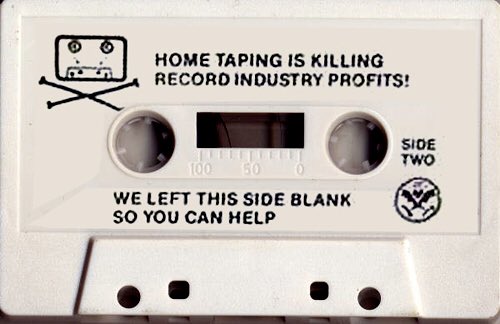On September 7, 1988, a skinny, near bald, 21-year-old mother took the mic midway through Late Night with David Letterman and blew the socks off both the live studio audience and the folks viewing at home.
She also appeared as an unwilling participant in a cheesy greenroom sketch with fellow guests comedian Robert Klein, crooner Jerry Vale, and a female day player costumed as a sexy cigarette girl from another era.
It’s a stupid, retrograde bit that’s become even worse with age, but young Sinead O’Connor’s refusal to play along with the problematic premise was as true to form as her howling performance of Mandinka off her first album, The Lion and the Cobra.
Performing in a studded jean jacket and Claddagh ring, she made her live US television debut with eyes mostly closed.
Letterman introduced her as a “remarkable, young singer and writer from Ireland.”
It’s fun to see the truth of that canned line hitting the house band as the song progresses. Bandleader Paul Shaffer looks especially tickled by the ferocity of O’Connor’s performance and her confident musicianship.
In her memoir Rememberings, O’Connor explains that the song was inspired by the 1977 television adaptation of Alex Haley’s semi-autobiographical historical novel Roots:
I was a young girl when I saw it, and it moved something so deeply in me, I had a visceral response. I came to emotionally identify with the civil rights movement and slavery, especially given the theocracy I lived in and the oppression in my own home.
She reprised Mandinka several months later at the Grammy Awards. She may have lost Best Female Rock Vocal Performance to established legend Tina Turner, but the LA Times waggishly declared her “black halter top, bare midriff, torn, faded blue jeans and large black work shoes” the “outfit of the evening”:
The latest addition to her shaved-head look is a tattoo of militant rap group Public Enemy’s insignia–a view through a telescopic gun sight–over her left ear. None of which detracted from her electrifying performance of her song “Mandinka.”
“I thought it was a little odd that they asked me to perform, because of the way I look,” a nervous-looking O’Connor told the press backstage. “But I find it encouraging that they asked, because it’s an acknowledgment that they are prepared not to be so safe about the music and push forward with people slightly off the wall.”
Two years later, her cover of Prince’s Nothing Compares 2 U, abetted by her defiant appearance, made her a household name. Nominated for four Grammys, she declined an invitation to perform at the ceremony. She also declined her award for Best Alternative Music Performance.
In a letter to the sponsoring organization, the Recording Academy of the United States, she argued against the music industry’s priorities, its overt tendency to rank artists based on their commercial success:
As artists I believe our function is to express the feelings of the human race–to always speak the truth and never keep it hidden even though we are operating in a world which does not like the sound of the truth. I believe that our purpose is to inspire and, in some way, guide and heal the human race, of which we are all equal members.
Those looking for early-90s examples of man-splaining might appreciate Recording Academy President Michael Greene’s response, in which he overlooked the Letterman appearance, claiming the Grammys provided O’Connor with her first nationally televised exposure in the States:
We applaud that Sinead feels so strongly about these issues and believe that her convictions only add to the seriousness of her work. But she may be misguided. We respect her immensely as an artist… But I’m afraid that Sinead may not be properly informed about the difference between the overtly commercial aspects of popularity contests as opposed to the Grammys, which are voted on by the creative community.
O’Connor doubled down, attempting to rally her fellow musicians to shine a light on society’s ills, telling the LA Times that “It’s not enough any more to just sit in your chair and say, ‘Yeah, it’s terrible.’:”
Musicians are in a position to help heal this sickness, but I’d say 90% of the artists in the music business fail in that responsibility. You must acknowledge if you are an artist that you are a role model for young people, whether you like it or not. If you don’t want to accept that responsibility, you shouldn’t be an artist. With power comes responsibility.
The industry, including awards shows, sends out the message that selling more records is good rather than telling the truth.
Honoring commercial success is the obvious purpose of the American Music Awards telecast, but it’s also the intent of the Grammys as well.
I think if artists were to be awarded for what they had achieved in so far as telling the truth … as far as healing the human race, then I’d say Van Morrison or Ice Cube, people like that should be honored.
That statement lends an extra poignancy to our viewing of O’Connor and Morrison’s 1995 Letterman appearance, when, backed by the Chieftans, they duetted on Have I Told You Lately?
In the wake of O’Connor’s death at 56 last week, the media reminded us of the time she ripped up a picture of Pope John Paul II on Saturday Night Live as a way of drawing attention to the Catholic church’s coverup of sexual abuse by the clergy.
They reminded us of the time Frank Sinatra claimed he’d like to “kick her ass” when she wouldn’t submit to singing the National Anthem before a concert.
They reminded us of her correspondence with Miley Cyrus, wherein she warned the younger singer not to “obscure (her) talent by allowing (her)self to be pimped” either consciously or unconsciously.
Meanwhile, Letterman bassist Will Lee reacted to the news by revisiting that 1987 appearance on his Instagram:
Sinead O’Connor RIP — I always felt her pain, but now I don’t have to. She is free. Her death comes as a shock to the system because I always hoped she would find resolve, but she went too soon….
– Ayun Halliday is the Chief Primatologist of the East Village Inky zine and author, most recently, of Creative, Not Famous: The Small Potato Manifesto and Creative, Not Famous Activity Book. Follow her @AyunHalliday.



